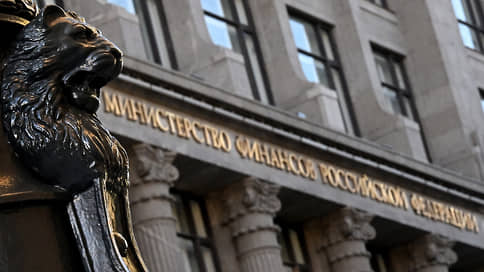Control over transactions of related companies may be tightened
[ad_1]

The Ministry of Finance is preparing to close a loophole for tax optimization in transactions at non-market prices between interdependent Russian and foreign companies. For such transactions, the amendments to the Tax Code propose additional tax consequences – equating the benefit of a foreign counterparty from overpricing to dividends at a rate of 15%. Lawyers note that situations where companies create intermediaries abroad to circumvent sanctions, but at the same time use them also to reduce taxes, are not uncommon.
The Ministry of Finance proposes to tighten the tax consequences for foreign trade transactions of Russian companies with their foreign related parties, if such transactions involve price manipulation. As follows from the draft amendments to the Tax Code developed by the department, it is planned to introduce a mechanism that ensures the taxation at the source in the Russian Federation of the income of a foreign person, which he received as a result of the use of non-market prices in transactions.
To clarify, now such transactions are checked by the tax service for deviations from the market price – for example, if a Russian person buys goods or services at an inflated price, this leads to an increase in his expenses, and, accordingly, an underestimation of income tax. In such cases, the taxpayer must himself adjust the transaction amount for tax purposes. Otherwise, the Federal Tax Service will do this – and the company will receive additional tax charges.
With the amendments, the Ministry of Finance proposes to establish tax consequences for the counterparty – if the price of the goods is unjustifiably higher than the market price, it is proposed to recognize the benefit of a foreign counterparty as dividends received by him from the Russian Federation. The rate for dividends is 15%. Additional tax will be charged to the Russian company as a tax agent, who was supposed to withhold it from the counterparty.
Forward Legal lawyer Roman Gusak explains that the changes are aimed at combating tax evasion in the formation of profit centers outside the Russian Federation. Entrepreneurs, due to sanctions to preserve supply chains, have become more likely than before to create intermediary companies abroad. “Often, such companies are used not only to maintain the possibility of supply, but also to generate capital (profit center) by increasing the price of goods without reasonable economic feasibility,” he explains.
According to Anna Modyanova, tax partner at Tekhnologiya Doravii, the measure additionally encourages Russian companies to set market prices in transactions with foreign companies, since a departure from this principle “may cost 15% more.” Tax practice lawyer at VEGAS LEX law firm Khati Abdurakhmanova believes that the innovation can encourage companies to make adjustments for tax accounting on their own, otherwise they risk not only getting a fine for failing to perform the functions of a tax agent, but also paying tax and penalties at their own expense, since the ability to withhold tax from payments to the counterparty may already be missed. According to the managing partner of Pleshakov, Ushkalov and Partners Vyacheslav Ushkalov, this approach is due to the fact that it is problematic to collect income tax from a foreign company, “which means you need to find someone you can reach out to.” However, he says, “it cannot be said that this is unreasonable, because transactions between related parties are shifting money from pocket to pocket of one person.”
As Alexander Erasov, partner of the IEF LEGAL tax practice, notes, such a practice exists in the world (secondary adjustment) to stimulate the use of market prices and fair taxation in case of their distortion. “In Russian practice, the wind has been blowing in this direction for a long time – there are cases in which the tax authorities have successfully applied a similar concept, and the changes will make it easier for them to prove that the difference between the transaction price and the market price should also be taxed at source.”
[ad_2]
Source link






